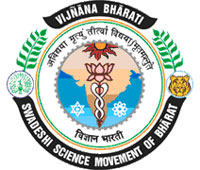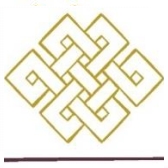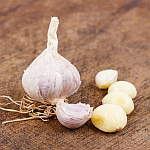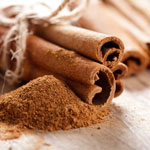.png)
Ayurvedic medicine can prevent H1N1 spread through air
26.09.2009 | To prevent the spread of H1N1 four simple steps to be followed are described - in addition to the earlier advisories of WHO and AYUSH.
Press release of Vijnana Bharati, September 1, 2009:
Ayurvedic medicine can prevent H1N1 spread through air
“Ayurvedic medicines can prevent H1N1 virus spreading through the air”, said A Jayakumar, National Organizing Secretary of Vijnana Bharati at a press conference in Delhi. Jayakumar, said that this information is made public as per the recommendations arrived at the National Consultative on Ayurvedic Approach to H1N1 influenza conducted by Vijnana Bharati and CCRAS, the research wing of the Department of AYUSH on 31st August, including experts from Ayurveda and Modern medicine.
“The purpose of the meeting was to identify medicines and procedures of Ayurveda which would assure better prevention and management for H1N1 influenza” said Jayakumar. He also pointed out that the two notifications released by WHO on the last week of August, 1) announcing a second wave of the H1N1 pandemic and 2) warning a new and more virulent Oseltamivir resistant strain of the virus, increases the relevance and need to prevent this viral scourge.
Dr Geetha Krishnan, Integrative Medicine Consultant of Medanta and organizing secretary of World Ayurveda Congress described the 4 simple steps to be followed, in addition to the earlier advisories of WHO and AYUSH, to prevent the spread of H1N1, which evolved as a consensus at the meeting.
1. A traditional Ayurvedic medicine “Aparajitha dhoopa” made of 8 herbs, can reduce the viral load in the atmosphere, when used for fumigation. This should be done twice daily, in closed environments such as class rooms, office spaces, house etc. “Aparajitha dhoopa” is a medicine, made by many Ayurvedic pharmaceuticals , and is proven to prevent the spread of another air borne viral infection, the “Chicken Pox” in closed environments such as hospital wards.
2. Application of Tila taila (Sesame oil) inside nostrils, using clean dry fingers / cotton swabs would ensure that the nasal mucosa and respiratory tract are immune to viral vulnerability at least for a period of 4 hours at a stretch.
3. “Dhoomapana”, a process of inhaling medicated smoke would further improve the health of the nasal mucosa and the respiratory tract. It is assumed to act directly in killing the virus and to reduce the number of colonies of viruses in the infected areas. The medicine prescribed for this is the common ‘Turmeric” (Curcuma longa). Dried turmeric root should be dipped in ghee and lighted up (with fire). This will lead to turmeric emitting fumes. This fume is to be inhaled through one nose (keeping the other closed) and exhaled through the mouth. The same process is to be repeated in both the nostrils and twice at a time. Dhoomapana with turmeric may be done twice daily. It would be especially effective in prevention when done after a probable exposure to the virus, without much delay.
4. Inhalation of medicated steam using Tulsi as the medicinal ingredient is another recommendation, to be done for 5 minutes each, everyday, morning and evening.
Dr Krishnan, also noted that the effectiveness of each of the above recommendations, needs to be reiterated at the earliest and Vijnana Bharati will collaborate with CCRAS, the research wing of AYUSH and National Virology Institute, Pune and other reputed institutions like AIIMS to conduct proper scientific validation, starting immediately.
Jayakumar told that the Consultative held yesterday has recommended to the government of India to formulate a National Quick Response Advisory Group, in the lines of CDC, USA, under the Department of AYUSH, to manage and respond to situations like H1N1 in future.
He also stressed on the need for creating nationwide mass awareness and pointed out that collaborative effort of the government with NGOs is the most effective route to do so. “Vijnana Bharati will propagate and inform these advises to the International Community, using various governmental and non-governmental media”, he said.
Jayakumar also informed that the National Consultative at AYUSH was presided by Sri S K Panda, Joint Secretary AYUSH and enriched by the presence of:
1. Dr Bir Singh, Professor Community Medicine, AIIMS,
2. Dr M R V Nampoothiri, Director Medical Education Kerala,
3. Dr K Muraleedharan, Trustee and Addl. Chief Physician, Kottakkal Arya Vaidya Sala,
4. Dr Janardhanan Pandey, Joint Director, AYUSH,
5. Dr Rambabu Dwivedi, Professor and HOD, Gujarat Ayurveda University,
6. Dr Laxmikanth Dwivedi, Professors National Institute of Ayurveda, Jaipur
7. Dr Jaiswal, Professors National Institute of Ayurveda, Jaipur,
8. Dr U M Rao, Deputy Director, CCRAS,
9. Dr Srikanth, Addl Director of CCRAS,
10. Dr Geetha Krishnan, Consultant, Integrative Medicine, Medanta the Medicity,
11. A Jayakumar, National Organizing Secretary, Vijnana Bharati.

| VIJNANA BHARATI (Swadeshi Science Movement of Bharat) 1261, Shukruwar Peth, Kashi Nivas, Infront of Wadia Hospital, Kendurkar Bunglow Subhashnagar, Lane No. 6, Pune-411 002 Maharashtra, India, Mob: 098957 62535 e-mail: jay2025@gmail.com |
A. JAYAKUMAR |
Titelbild: Bild von Anastasia Gepp auf Pixabay; https://pixabay.com/de/photos/krankheit-die-gew%C3%B6hnliche-erk%C3%A4ltung-4392136/

.jpg)


.png)



